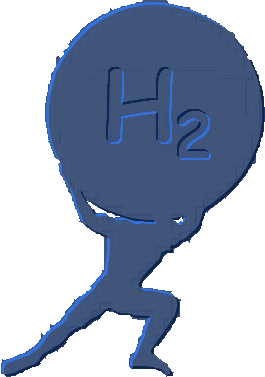Consortium
National Centre for Scientific Research Demokritos (Greece)
The National Centre of Scientific Research "DEMOKRITOS" was founded at the end of the 1950s, as a decentralized public service and was initially named Nuclear Research Centre "DEMOKRITOS".
The initial aim of the new centre was the utilisation of the advantages of nuclear energy for peaceful aims. Within this framework, and for the first time in the contemporary history of Greece, the repatriation of many Greek scientists emerged. These scientists gradually developed the structures and the organisation of scientific research in our country and participated in the configuration of the Centre as a really pioneering multi-branch centre.
In 1985, the Centre was renamed as National Centre of Scientific Research "DEMOKRITOS" (N.C.S.R. "D") and became a self-administered governmental legal entity, under the supervision of the General Secretariat of Research and Technology (G.S.R.T.) of the Ministry of Development.
Nowadays, the scientific activities of the Centre take place in eight administratively independent Institutes: Institute of Nuclear Physics, Institute of Nuclear Technology and Radiation Protection, Institute of Materials Science, Institute of Telecommunications and Informatics, Institute of Microelectronics, Institute of Physics/Chemistry, Institute of Biology and the Institute of Radioisotopes and Radiodiagnostic Products.
The activities of these Institutes concern the sectors such as: nanotechnology, microsystems, integrated telecommunications and informatics technology systems, modern technologies for cultural heritage, control of environmental pollutants, nuclear technology and radiation protection, accelerative systems technologies and detector devices, generation and characterization of innovative materials, bioactive molecules, natural products and biotechnology, medicines and diagnostics technologies, telemedicine, etc.
Centre National de la Recherche Scientifique (France)
The Centre National de la Recherche Scientifique (National Center for Scientific Research) is a government-funded research organization, under the administrative authority of France's Ministry of Research.
Founded in 1939 by governmental decree, CNRS has the following missions:
·To evaluate and carry out all research capable of advancing knowledge and bringing social, cultural, and economic benefits for society.
·To contribute to the application and promotion of research results.
·To develop scientific information.
·To support research training.
·To participate in the analysis of the national and international scientific climate and its potential for evolution in order to develop a national policy.
Hystore Technologies Ltd (Cyprus)
McPhy’s storage systems are enabling a real breakthrough in merchant hydrogen distribution and create a viable answer to the rising demand for energy storage.
McPhy’s mission is to industrialize and commercialize an innovative solid-state hydrogen storage technology that offers unique advantages compared to other hydrogen storage solutions.
Hystore Technologies Ltd is a privately own, Cyprus registered (August 2003) company located in the Ergates Industrial Area in Nicosia-Cyprus.
Hystore Technologies is a Research & Development, Production and Consulting Company in the area of Renewable Energy Sources (RES) & H2, and Water Desalination. It provides high quality engineering consulting services, such as feasibility studies/reports/support for PV/Wind/Solar Thermal Parks and for Desalination Plants, to private investors and companies, who are interested in expanding their operations in Cyprus. Hystore Technologies activities cover the whole spectrum of H2 production, purification, storage and the use of H2 in applications such as the “green” electricity production with H2/Fuel Cells. Special emphasis is given in the “green” hydrogen production with the use of RES (PV/Wind). Hystore Technologies is one among only a few Companies in Europe producing Metal Hydride Storage Tanks/Systems from 5 NlitersH2 to 500000 NlitersH2 or more, for mobile and stationary applications. Hystore Technology has developed an “on-board, on demand H2-production without electricity” units (CHEM-HY). This is done by catalytic decomposition of water (H2O) and the use of chemical hydrides. The CHEM-HY units have an impressive performance at below and above freezing temperatures, and they are suitable for both mobile and stationary applications.





